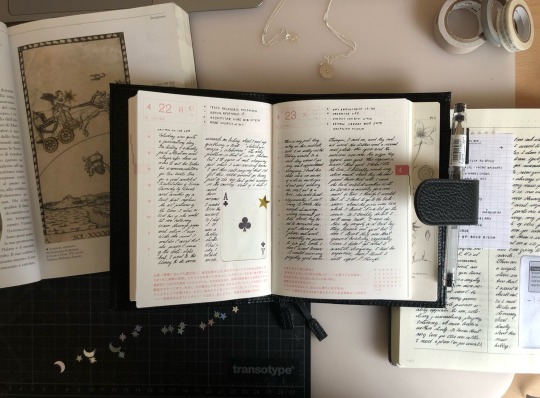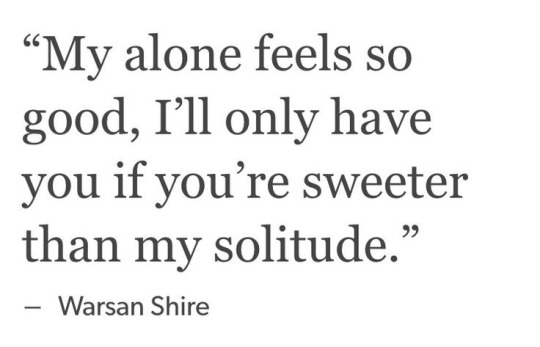Text
And sometimes I have kept my feelings to myself, because I could find no language to describe them in.
Jane Austen, Sense and Sensibility
141 notes
·
View notes
Note
Not an ask. Just wanted to say your handwriting is just ... wow (and I hate you for it lol) 💙
Thank you, for both comments (just going to answer this one). (˶ᵔ ᵕ ᵔ˶)
1 note
·
View note
Text
youtube
youtube
Ok, so today, we have not one, BUT TWO, youtube videos up. They are very different, the first is the standard journal with me + the hobonichi unboxing and testing. While the second, is a chatty video where I answer some questions and also talk about my notebooks (before getting the hobonichi). Anyway, choose whichever you feel most tuned with, or if you can, watch both. ⸜(。˃ ᵕ ˂ )⸝♡
Thank you!
#notes#bullet journal#commonplace book#commonplace journal#notebook#youtube#small artist#hobonichi a6#hobonichi#Youtube
17 notes
·
View notes
Text




details of armor of Emperor Ferdinand I (1549) at the MMoA
506 notes
·
View notes
Text

“ (…) l’astrolgia è la scienza divina che rende gli uomini felici e che insegna loro ad apparire dèi fra i mortali” - Flavio Mitridate.
I’m in love with this notebook system, and the book beside it as well (“Astrologia, magia, alchimia” by Matilde Battistini. This might be my favourite picture of my notebooks, so far.
On another note, next video will be a little late, probably this weekend. Thank you again for the ongoing support.
Translation of the quote above:
“(…) astrology is the divine science that makes men happy and teaches them to appear gods among mortals.”
#notes#bullet journal#commonplace book#commonplace journal#notebook#academia#dark academia#youtube#astronomy#astrology#quotes#hobonichi a6#hobonichi
147 notes
·
View notes
Text
The sexual tension between a girl and not feeling real every time her birthday comes around
7K notes
·
View notes
Note
why do u hate t swift?
no offence, just wondering why r u so opinionated against her
none taken! i've been waiting for an opportunity to collect my thoughts on her and her brand and i thank you for providing me with one. bear with me, because this is going to be rather long under a read more.
to quote the post you're no doubt referring to here, i don't hate her. rather, i take issue with the culture that surrounds her, and i think the cult status she's been assigned by fans as an 'artistic genius' is reductive and in fact damaging to the culture as a whole.
she's the ultimate culmination of an anti-intellectual consumerist culture: she's unfathomably wealthy and uses that money to take 20 minute flights on her private jet and has earned that money by the grace of some truly strange, cultish fan behaviour that lives in denial that her work is shallow at best and downright conservative and culturally vacant at worst.
i can say this: she writes bland, decent-sounding music and i truly have enjoyed some of her songs as background music in the past. but the problem is this weird mutual delusion that she writes anything better than that! she doesn't! i really don't understand what you're all listening to. am i losing my mind here. 'touch me while your bros play grand theft auto' 'sometimes I feel like everybody is a sexy baby' 'i'd say the 1830s but without all the racists' hello?? this last is a prime example, betraying staidly liberal if not softly conservative viewpoints. see also: her romanticisation of frontier ideology ('i forget how the West was won', from but daddy i love him; 'when they found a better planet, only the gentle survived', from i hate it here; the colonial fantasy of the wildest dreams music video).
so let's unpack some of her motifs.
take the lyric 'you wouldn't last an hour in the asylum where they raised me' from who's afraid of little old me?. now, i get it, this is kind of a fun line. but the problem is that the fans for some reason perceive this kind of thing as a great line, which it isn't, if only because of the context in which it was written. she's not engaging with anything meaningful here. i guess you could bring it together with her song mad woman in the interest of formulating some dialogue about her intersection with mad studies/anti psychiatry.... which would be interesting! in that it's a recurring theme in her lyricism to address the perception of female hysteria and herself feeling/being seen as mad. but where this rubs me up the wrong way is that she's writing herself into this position of oppression in which her fans have located her (take the whole rereleasing thing — admirable aim, wanting to own your own music, but let's be clear here, it's mostly about money. you aren't contributing to women's human rights by buying a new album that sounds exactly the same as the old one and thereby putting more money in the pocket of one of the celebrity world's biggest environmental polluters) and that just Does Not Work with who she actually is. no doubt she's drawing from her own personal experiences with the hysteria metaphors but there's no getting away from the fact that she's one of the most privileged women in the world. it's very difficult to take her work seriously when she draws on motifs of structural, societally-regulated oppression to describe her own personal heartbreak. she's not writing about mental illness, she's writing about how a breakup was like mental illness. the racism is a metaphor, actually.
and it's not like this is the worst crime in the world. writing in general is entirely about comparing things to other things. but i take issue with the fact that her fans are lauding her as a lyrical genius, the best songwriter of the century, a groundbreaking artist, when her songs are all so personally involved and derivative. great literature uses intertextuality to look outwards. meanwhile tswift is out here calling matty healy dylan thomas. like idk it's blatant to me that her career is engineered towards a pretty singular goal: making as much money as possible, and maintaining a monopoly over the music industry in service of that goal. and i mean i guess girlboss? #winning? because it's working. she's selling out stadiums and breaking records and everyone is talking about her.
but when this is the end goal of your career trajectory, it's inevitable that you're going to make middle-of-the-road, generally relatable music. and i have nothing against that sort of music, really i don't, as much as i read the postmodernists and joke about being a pick-me. but i do find it concerning that mass-market material is being taken for revolutionary, transgressive art.
forgive me if i get theoretical here. but writers like brett easton ellis saturate their work with brand names and other cultural signifiers to express the decay of meaning in an ironic, consumerist world, where product and image subsume all. tswift writes 'you smokеd, then ate seven bars of chocolate/we declared charlie puth should be a bigger artist' and it doesn't express anything, it is that loss of meaning. it is image and sound and stadium lights. the genius page for this song decodes these lines in terms of their cultural referents: 'Matty Healy is known for smoking. The 1975 has a song called “Chocolate” and “bars” could be referring to that track as lines in a song.' tswift has made herself and her personal life the product. she isn't writing about anything other than herself, but that's fine, because it's relatable anyway, because we all know who she is and why she's heartbroken this time. her celebrity inhabits us: we do not need to see ourselves in her because she is all around us, within us. her references are signifiers only for themselves. she has no interest in examining meta-textually the implications of her art in the wider cultural landscape, only writing about her own life — which is fine when you're a fun pop singer.
but her fans have been positioning her as something more meaningful than that. and, consequently, she's leaning into this positioning — take the title of her album, the tortured poets department. it's clearly a reference to dead poets' society: she fancies herself a whitman or a byron or a blake. as another poster on here identified, however, it comes across strangely bureaucratic. department, not society. like someone's sitting in an office cubicle analysing algorithms and trends so they can advise this 'tortured poet' on how best to capture public obsession this time. and she’s aware of this bureaucracy: she leans into it, in fact, in the ‘summary poem’ that goes alongside the album. she addresses the album as a 'hearing', a 'debrief', a report of her findings of her own losses. but then it's also described as a trial — 'my plea here today of temporary insanity'. once again, she's invoking metaphors of madness and positioning herself as the vulnerable party in a system of authority. the tortured poets department, then, is not a colloquium, consortium, or otherwise friendly meeting of similarly tortured like minds. it is not a support group — it is a judicial, penal body.
and tswift is not tearing this body down. as the penultimate line of the poem goes, 'all’s fair in love and poetry' — not love and war, as the john lyly proverb goes. she's not here to fight for anything. 'poetry''s extra syllables change the rhythm of the line and throw it off balance, jarring the reader. perhaps this is deliberate, calling attention to it, to her own deliberate choice to set herself out as a poet, an artist, not just a pop singer. but it rather heavy-handedly serves to emphasise the whole problem here. her constant invocation of Poetry — capital P — once again serves as signifier that erases the resonance of the signified. if she tells us it's poetry enough times, surely that means people will take it as such. it doesn't matter what it's actually saying.
she sets herself out as the 'chairman' of the tortured poets department, right after marking it out as an authoritative institution from whom she pleads for a merciful sentence. this is the institution that will send her to the 'asylum' on her insanity plea — an institution she herself has founded. her oppressive cage is a cage of her own making, the hall of mirrors that is her own celebrity. and this is meaty stuff — for an essay on the cult of celebrity with anti-psychiatry, poststructuralist, post-postmodern references. throw in some foucault for good measure.
but i earnestly do not believe that she is doing any of this deliberately. her work does not stand up to sustained radical analysis because it is not designed to be radical — it coopts the aesthetics of literary movements in the drive towards profit. she has become a parody of what her fans and her marketing team claim her to be, which is a lyrical genius and an artistic savant. the tswift brand has made her into an idol of late capitalism, a vapid collection of literary symbols with no referent and nothing behind them but an atmosphere-poisoning private jet.
tldr: i wouldn't care if swifties could just be normal about her but instead they decided to deify her so now we can't have nice things
170 notes
·
View notes
Text
as each year goes by I feel more and more lost and also more and more like myself
5K notes
·
View notes
Text
Our American culture made a virtue of our living only as extroverts. We discouraged the inner journey, the quest for a center, and so we lost our center and had to find it again.
Anaïs Nin, In Favor of the Sensitive Man and Other Essays
52 notes
·
View notes
Text
I did not want to think about people. I wanted the trees, the scents and colors, the shifting shadows of the wood, which spoke a language I understood. I wished I could simply disappear in it, live like a bird or a fox through the winter, and leave the things I had glimpsed to resolve themselves without me.
Patricia A. McKillip, Winter Rose
173 notes
·
View notes






